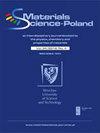利用焊接金属网改造热损伤纤维加固混凝土圆柱体
IF 1.3
4区 材料科学
Q4 MATERIALS SCIENCE, MULTIDISCIPLINARY
引用次数: 0
摘要
火灾对钢筋混凝土结构的整个生命周期都构成了重大风险。尽管混凝土不易燃,但火灾会影响其应力应变特性和耐久性。因此,加固方法是延长其使用寿命的一种经济选择。本文旨在对使用焊接金属丝网(WWM)配置改造热损伤纤维增强混凝土圆柱体进行实验研究。研究了四种混凝土混合物。总共对 48 个混凝土圆柱体进行了轴向压缩测试,直至破坏。测试程序中考虑的主要变量包括:(i) 不同纤维类型(钢纤维 (SF)、聚丙烯 (PP) 和混合纤维 (SF+PP))的影响;(ii) 暴露温度(26°C 和 600°C);以及 (iii) WWM 增强。暴露温度达到 600°C 会导致抗压强度显著降低,降幅从 23.7% 到 53.3% 不等;而无论纤维类型如何,加入纤维都会对混凝土的抗压强度产生重大影响,增加的比率最高可达 34.7%。研究结果还清楚地表明,与未加热的对照试样相比,使用 WWM 护套对热损伤试样进行加固后,SF、PP 和 SF+PPF 试样的抗压强度分别提高了 38.8%、4.9% 和 9.4%。建议的加固方法包括使用两层 WWM 套层,成功恢复并超过了因暴露在高温下而受损的试样的初始混凝土抗压强度。本文章由计算机程序翻译,如有差异,请以英文原文为准。
Retrofitting of heat-damaged fiber-reinforced concrete cylinders using welded wire mesh configurations
Fire damage poses a significant risk to reinforced concrete structures throughout their lifespan. Fire exposure influences the stress-strain properties and durability of concrete, despite its non-flammability. Therefore, the strengthening approach is an economic option for lengthening their lifespan. This paper aims to conduct an experimental investigation into retrofitting heat-damaged fiber-reinforced concrete cylinders using welded wire mesh (WWM) configurations. Four concrete mixes were investigated. In total, 48 concrete cylinders were tested under axial compression until failure. The primary variables considered in the testing program consisted of (i) the influence of various fiber types (steel fiber (SF), polypropylene (PP), and hybrid fibers (SF+PP)); (ii) exposure temperature (26°C and 600°C); and (iii) WWM strengthening. Exposure to a temperature of 600°C led to a significant reduction in the compressive strength, ranging from 23.7% to 53.3%, while the inclusion of fibers has a substantial effect on the compressive strength of concrete, regardless of fiber type, with an increased ratio reaching up to 34.7%. The finding also clearly shows that the strengthening of heat-damaged specimens with WWM jacketing resulted in a 38.8%, 4.9%, and 9.4% increase in compressive strength for SF, PP, and SF+PPF specimens, respectively, compared to unheated control specimens. The suggested approaches to strengthening, which involve the use of WWM jacketing with two layers, successfully restored and surpassed the initial concrete compressive strength of the specimens that were damaged due to exposure to high temperatures.
求助全文
通过发布文献求助,成功后即可免费获取论文全文。
去求助
来源期刊

Materials Science-Poland
MATERIALS SCIENCE, MULTIDISCIPLINARY-
自引率
18.20%
发文量
18
期刊介绍:
Material Sciences-Poland is an interdisciplinary journal devoted to experimental research into results on the relationships between structure, processing, properties, technology, and uses of materials. Original research articles and review can be only submitted.
 求助内容:
求助内容: 应助结果提醒方式:
应助结果提醒方式:


